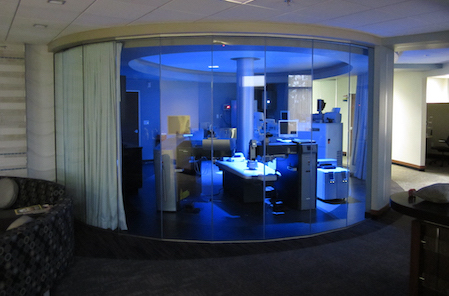How to Choose a LASIK Surgeon
Once you’ve decided on LASIK Eye Surgery, how do you choose a LASIK surgeon?
Your vision is precious and you want your laser vision correction procedure to be a once in a lifetime experience, both because you are treated so well, but also literally just a one-time experience.
In your job you know that some of your co-workers do a better job than others because they have more experience, care more, and try harder. LASIK surgeons are no different. The technology mechanizes important parts of the procedure, but the surgeon plays an essential role before, during, and after surgery. You want a really good one.

In addition, you know that you do better work with your new computer than with the one you had 15 years ago. Laser technology is the same. Some centers use only lasers that are literally 15 years old with relatively few upgrades added over the years while others have invested in technology that reflects the best that science and safety have to offer.
You want to choose a quality laser vision correction center. There are a number of great LASIK surgeons and centers around the U.S.
Here are some tips to help you choose wisely.
The Right Eye Surgeon
Choose a LASIK surgeon with experience and good outcomes. It is a good idea to find out how many procedures he/she has done, the 20/20 rate, and the enhancement rate (touchup rate). New surgeons need to learn somewhere, but it doesn’t have to be on you! The ideal surgeon will have done thousands of cases, have a 20/20 rate above 90%, and a low enhancement rate of 2-5%.

Enhancement Rate
It is a good idea to find out how easy it is to have a touchup surgery if needed. Some surgeons have a low enhancement rate only because they make it difficult or costly to receive one. You want a surgeon that makes it easy for you to improve your vision if needed, but is accurate enough that touchup are rarely needed.
Friendly Caring LASIK Surgeon
Is it too much to ask that the LASIK surgeon is friendly and responsive? Trust and confidence in your surgeon affects the way the surgery goes and the way you heal. Make sure there is a good fit. It also helps if the doctor has been in your area throughout his/her career so you have reason to believe they will be there for you when you need them.
I have had LASIK myself. My own LASIK experience has helped by better preparing my patients for their LASIK day experience.
Board Certified Ophthalmologist
It is a good sign if your surgeon is board certified and if he/she is involved in research, is regularly called on to give lectures to other doctors at the major medical meetings, and has been selected by industry to train new surgeons.
The Right Laser Center
You choose a LASIK surgeon, in part, by the center where he/she does the LASIK. Pick a center with state of the art laser and safety monitoring equipment. Safety checks before surgery to make sure you are a candidate would ideally be done with a machine that measures both front and the back surface of the cornea like the Pentacam topographer rather than just the front surface like the Atlas topographer.
Improvements have been made in the quality of the laser pattern, the speed of laser delivery, and how many times per second the laser tracks the position of your eye to adjust for minor eye movements. At our laser center, for example, we have two different excimer lasers and use the one that is best for our patients’ specific needs.
Bladeless LASIK
In addition, some surgeons use an oscillating razor (microkeratome) to create the LASIK flap while others use a femtosecond laser for that important task. Using the femtosecond laser to make the flap makes the vision correction procedure “bladeless LASIK.” Most surgeons feel that creating the flap with a laser is safer and more accurate. One important way to choose a LASIK surgeon is to find out if they create bladeless flaps. the later generation femtosecond lasers like the Intralase IFS create a flap with an undercut bevel that makes the flaps stronger and more resistant to trauma as opposed to the older Intralase 60 hz lasers.
The Right Feel
The way you feel when you walk into a laser center matters. They way they treat you and how attentive they are to your needs are indicators of how much they will care for your individual needs. Trust your gut on this one and if something doesn’t feel right, move on.
The Right Price for LASIK
Finding a fair price for LASIK is important. Modern technology, higher quality staff, individual attention, and greater surgeon involvement carry a higher cost. Most of the quality oriented laser centers charge about the same amount. Deep discount laser requires that costs and some amount of quality are cut in the process. The ideal strategy regarding your eyes is to focus on a great value rather price alone.
The Right Reputation and Referral
One of the best ways to select the right surgeon and the right center is to ask your friends. They will be experts on how they were treated. Ask your optometrist who does the best work in the region and ask your primary care doctor. One illuminating trick is to ask a potential surgeon who did his/her LASIK or who they would recommend other than themselves?
Questions to Help you Choose a LASIK Surgeon
- How many eye surgeries have you done?
- Will you use the femtosecond laser or the blade to create my flap?
- Does your topographer measure the front AND the back of my cornea?
- Which laser patterns do you use and which are you recommending for me?
- What are the risks of laser eye surgery for my eyes?
- Is there anything about my eyes that puts me at a higher than normal risk?
- What would you do if you had my eyes/if I were your brother/sister/mother, etc.?
- Whom would you have do your eyes?
- What other LASIK surgeon in the area do you trust?
- Are enhancement procedures included in the price and for how long?
In addition, you can check the internet review sites like Medrounds, Yelp, HealthGrades, and Google reviews. LASIK isn’t for everyone. Some are not candidates and some are not motivated enough for the freedoms that LASIK could bring to weather the risks. I know the reasons I choose to have LASIK and it was a great choice for me. If you have any additional questions on how to choose a LASIK surgeon in your area, please leave a comment or contact my office.

